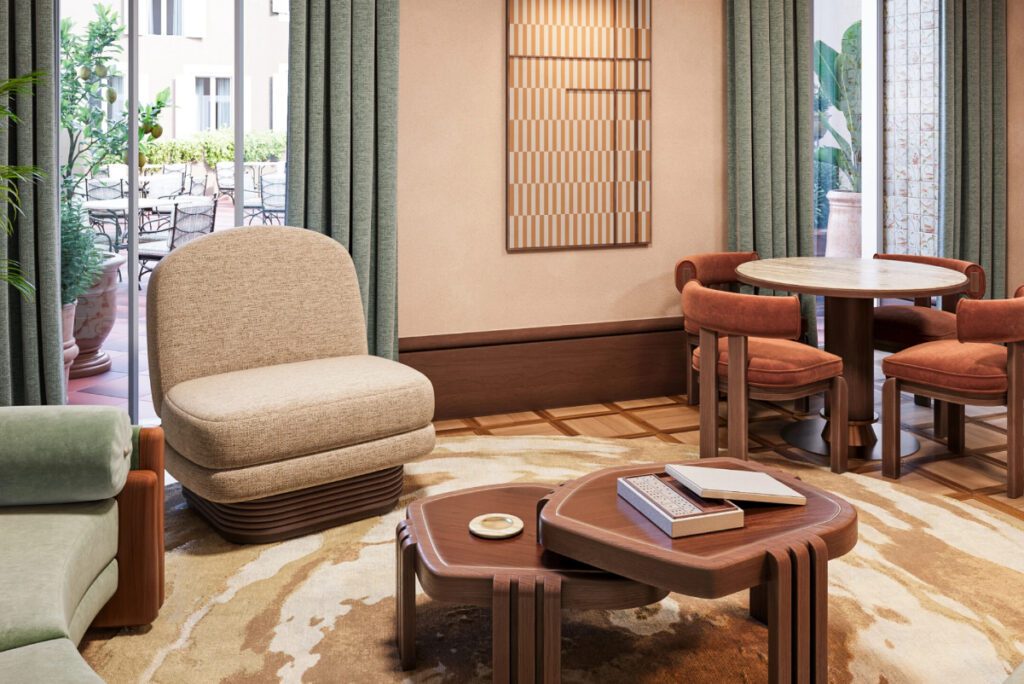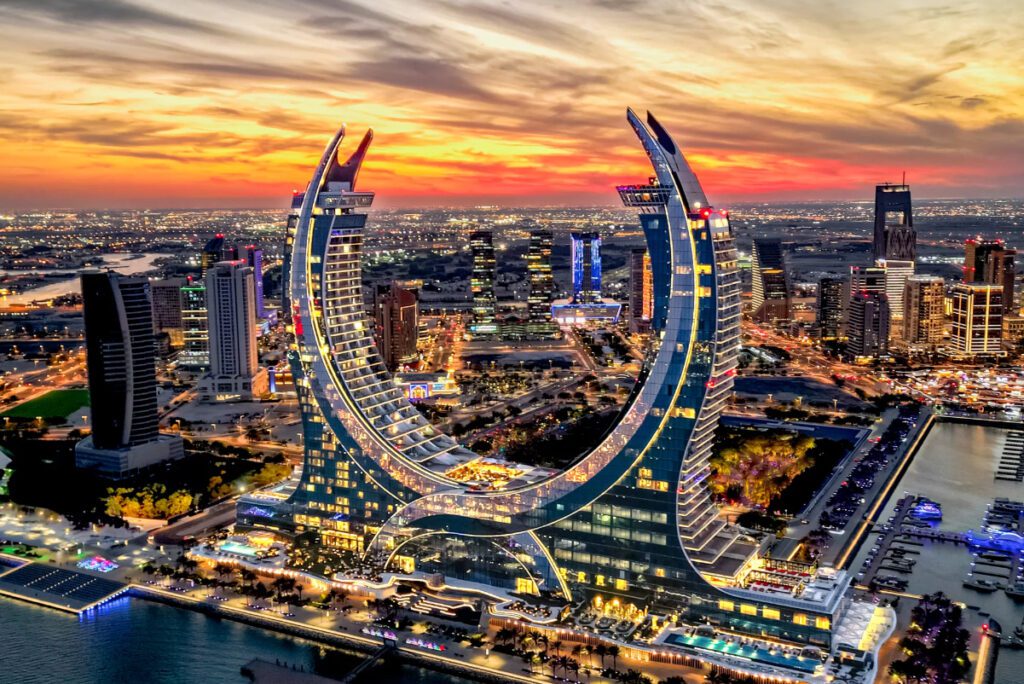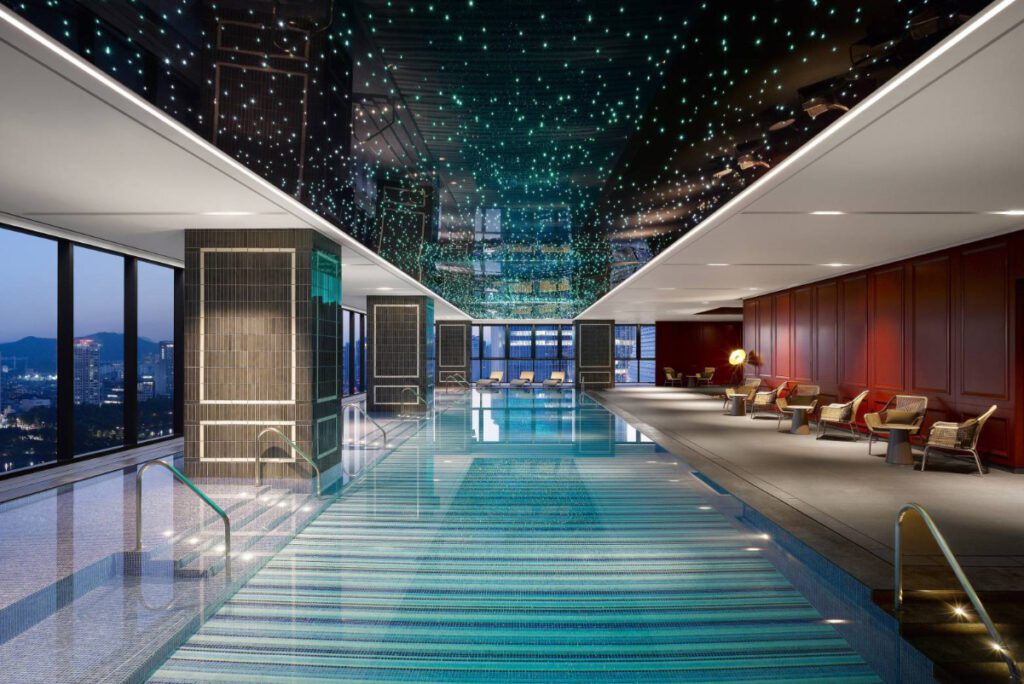Accor Bets on Luxury to Close Gap with Marriott and Hilton

Skift Take
Accor CEO Sébastien Bazin has been boosting the hotel group's luxury offerings since 2013 when he became the leader of the Paris-based hotel group.
At the end of 2015, only 6% of Accor's rooms worldwide were luxury, and it had only two luxury brands: Sofitel and MGallery. Today, at least 10% of its over 800,000 rooms are in the luxury segment, and the group offers a broader range of brands.
At the International Luxury Travel Market (ILTM) expo in Cannes last month, Accor showed off its offerings in an enormous tent on the beach. "I promise you that Marriott will never get this tent," Bazin joked at an opening dinner, referring to how Accor negotiated with Cannes for its exclusive use.
Perhaps, but Accor, with over 380 luxury hotels, isn't as big of a player in the space as the global leader Marriott, with 534, or Hilton, with more than 500.

Accor Adds Ultra-Luxury
Bazin's latest ambition is to debut Orient Express this year as a brand of hotels, trains, and yachts. Orient Express will be Accor's second brand after Raffles in the 'ultra-luxury' segment (think rooms that typically sell for over $1,000 a night).
"I never understood why the travel industry moved away from the best-ever years of luxury travel — about 100 years ago," Bazin said. "Those years were exceptional in terms of the beauty of the uniforms, service, music, gastronomy, baccarat, fragrance."
This spring, Orient Express La Minerva opens in Rome, the first asset in Orient Express’s planned portfolio of hotels, sleeper trains, and sailing yachts. The 93-room property overlooks Rome's Pantheon and features a renovation of a 17th-century palazzo.
In 2026, Accor will join LVMH in debuting the first two Orient Express overnight trains, whose first routes will crisscross Italy. It will also debut the world’s largest sailing yacht, Orient Express Corinthian. The brand has appointed Chef Yannick Alléno, who has earned two three-star Michelin ratings from his restaurants, as Orient Express's executive chef.

Raffles and Fairmont
Bazin closed Accor's acquisition of the luxury hotel brands Raffles and Fairmont in 2016. Last year, he appointed Omer Acar as CEO of the two brands.
Acar wants Fairmont to be "intimately tied to the social fabric of a destination" with accessible luxury and venues that can host large groups. "If it's a landmark wedding or peace conference, it's most likely going to happen at a Fairmont," he said.
Fairmont is "a larger-scale brand," with "close to 90 hotels open" and "30-plus hotels in the pipeline."
This year, Fairmont will promote expanded services on the "Gold Floor" of each hotel, a floor reserved for VIPs who receive more personalized service from staff in a kind of "hotel within the hotel."
Because of the overlap in customer bases, the brand will this year deepen its partnerships with professional golf events. Golf is often a favorite pastime of its guests, and 40% of its resorts have golf courses.
Raffles has smaller properties focused on intimate gatherings by families and executives. Recent successful openings in Boston, Jaipur, and London and a pipeline that includes Jeddah, Saudi Arabia, and Sentosa, Singapore, speak to the brand's strength with developers, Acar said.
"Raffles stands for a service culture that attracts a city's best," Acar said. "We opened our 147-room Raffles in Boston in 2023, and it's been a huge success. Most importantly, if you go to the dining room or the long bar, you'll see that everyone in the city of Boston is there. That's what we aim for at every location."
Acar would like to expand Raffles selectively in key markets, such as Miami and top U.S. ski towns.

Sofitel Revamp
In 2023, Bazin appointed Maud Bailly CEO of the luxury hotel brands Sofitel, Sofitel Legend, MGallery, and Emblems.
Bailly faced some turnaround work at the flagship Sofitel brand, which has 124 open hotels. The 60-year-old brand lost its way in the eyes of many owners after Accor acquired it in 1980.
Bazin, in 2023, reorganized Accor to be more like LVMH, the luxury goods conglomerate. Each Accor luxury brand will operate more independently as a "maison," or house. Bazin wanted individuals like Acar and Bailly to lead teams focused on managing just a handful of brands — a model LVMH has used.
Bailly spent the past two years traveling to gather feedback from owners, guests, and staff. She has aimed to revitalize the Sofitel brand by working on renovations, service culture, and brand positioning.
Different hotels under the Sofitel brand pursued different goals, whether nightlife hotspots, meeting venues, or leisure resorts.
"Based on the feedback, I know our positioning should be as the best-in-class French luxury hospitality player," Bailly said. "Every Sofitel should be deeply embedded in local communities, with a very strong sense of commitment to a service culture that embodies generosity and isn't rigid. I sum these up as 'French zest,' 'a local cultural link,' 'heartfelt service,' and 'committed luxury."
Sofitel implemented major renovations across a quarter of the hotels, including ones in New York, Philadelphia, and Bangkok.
Bailly focused on enhancing staff culture. For general managers, she encouraged the development of leadership principles she calls "humble excellence, distinguished presence, and emotional intelligence."
For front-line staff, she and colleagues rolled out an interactive training program called "I Love, I Live, I Lead" to help employees improve their skills. She also relaxed previously rigid protocols so that staff feel empowered to provide customized, creative service based on their best instincts for a situation.
"You can train your staff to develop their self-confidence and to let them dare to express their authenticity," Bailly said.
"You can forgive a product that will soon be refurbished but isn't perfect yet, but you can't forget a service that isn't impeccable," Bailly said.
Bailly recounted a recent touching moment when a staff member who had worked at a hotel for 24 years said to her, "I wanted to thank you because I'm proud again."
Accommodations Sector Stock Index Performance Year-to-Date
What am I looking at? The performance of hotels and short-term rental sector stocks within the ST200. The index includes companies publicly traded across global markets, including international and regional hotel brands, hotel REITs, hotel management companies, alternative accommodations, and timeshares.
The Skift Travel 200 (ST200) combines the financial performance of nearly 200 travel companies worth more than a trillion dollars into a single number. See more hotels and short-term rental financial sector performance.





